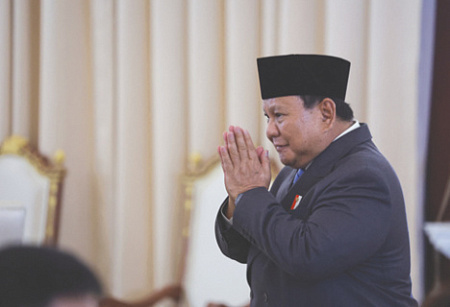
The Indonesian authorities have planned to publish 10 volumes on the history of the country. According to the Minister of Culture, the goal is to “reinvent Indonesia’s identity, to put Indonesia at the center of the historical process.” Some historians fear that these books will be propaganda. They say that the government is revising the history. And this is happening after President Prabowo Subianto won the elections last year. He was voted by young people who know nothing about what happened during the reign of President Mohammed Suharto from 1966 to 1998. He is portrayed as a hero despite human rights violations. The bloody massacre of Communists and those who sympathized with them in 1965-1967 is also being hushed up.
According to Reuters, Prabowo openly praises Suharto, who at one time was his father-in-law. Prabowo is also increasingly resorting to the services of the army to enforce his policies. The current president, who held major positions in the army in 1998, is accused of involvement in the abductions of rebellious students. Prabowo denies these claims.
Professor Asvi Varman Adam, who worked at the Agency for National Research and Innovation, urges other scientists to demand that lawmakers carefully study books that will become propaganda. “I suspect that there is an intention to give legitimacy to the current regime by glossing over the massive human rights violations in 1998 that Prabowo was involved in. We can expect that the government will posthumously give Suharto the title of “national hero,” he said.
The journalists asked the Minister of Culture Fabli Zon if the story would be politicized and if the facts of human rights violations would be omitted. The minister replied, “The story will be written correctly.” Prabowo was the commander of special forces units during Suharto’s 32-year rule. Nevertheless, the Minister of Culture claimed that neither he nor the president would edit the books.
The decision to publish these books was made in 2024. They should give a complete description of the history of Indonesia, from the appearance of man there to the rule of President Prabowo Subianto. The authors and editors will be 100 historians. The Ministry intends to publish the books by August 17– the Independence Day of the country.
Made Supriatma, a visiting fellow at the ISEAS -Yusof Ishak Institute in Singapore, says the government will use the same theses and formulations as Suharto, who in 1975 published a series of books, The National History of Indonesia, which glorified the army and was full of inaccuracies. “To be honest, the quality of the presentation of history under the Prabowo Subianto regime is low. Would they dare to post my comment?” – Madame asks a question.
However, one of the historians who participates in the government’s project claims that the abduction and torture of students will be mentioned in the books. But it is unknown whether Prabowo, who was then in command of the special forces, will be mentioned.
Another key problem for authors and publishers is how to tell about the mass killings of Communists and those who sympathized with them in 1965 and 1966. These crimes were committed by the military and the leaders of the Islamic parties. Some historians say that more than half a million people were killed. There was no investigation. These murders were committed in response to an attempted coup by the Communists. Army generals were killed during it.
Suharto came to power after these tragic events and remained at the head of state until 1998, when he had to step down amid mass protests and the economic crisis. He was accused of corruption and selection of personnel based on the principle of kinship.
And today, the Minister of Culture justifies the need to rewrite history by saying that previously she had paid too much attention to the period of the country’s colonization by the Netherlands. This is incorrect. It is necessary to emphasize the stubborn resistance of the people to the colonialists. The Minister claims that the colonial period did not last 350 years. “All this time we have been resisting the colonialists,” he says. “The main thing is not how long the colonial rule lasted, but how we fought against it. We must strengthen the teaching of history to people. If we don’t know our history, we won’t understand today’s time,” the minister stressed.
“So what is the point of revising history?” NG asked Alexey Drugov, Chief Researcher at the Institute of Oriental Studies of the Russian Academy of Sciences. He noted: “Despite the political reforms carried out, the army remains the most popular and influential political force. The army and especially the ground forces are the brainchild of Suharto. In addition, the Indonesian elite does not dare to analyze the facts of the massacres in 1965-1967. And now Suharto is going to be made a national hero. Human rights activists object to this. But they are not the majority of public opinion. The army launched a strike against the first President of Indonesia, Ahmed Sukarno. He was supported by the Communist Party then. And because she was the most organized force at that moment, the military attacked her and her supporters. They have received financial and political support from the United States in this regard.”
China is now one of Indonesia’s main trading partners and investors. And in those terrible days, what was the fate of the Chinese diaspora in Indonesia?
The expert said there had been attacks on Chinese stalls and shops. But there were no ethnic killings. So far, China has not commented on the decision of the Indonesian authorities to review the story.
